
Estonia’s Top Diplomat: Stop Putin Now or Prepare for NATO-Russia War
SUBSCRIBER+EXCLUSIVE INTERVIEW — With a mere 1.2 million citizens, Estonia is among NATO’s smallest members, but its contributions to Ukraine have led the pack by […] More
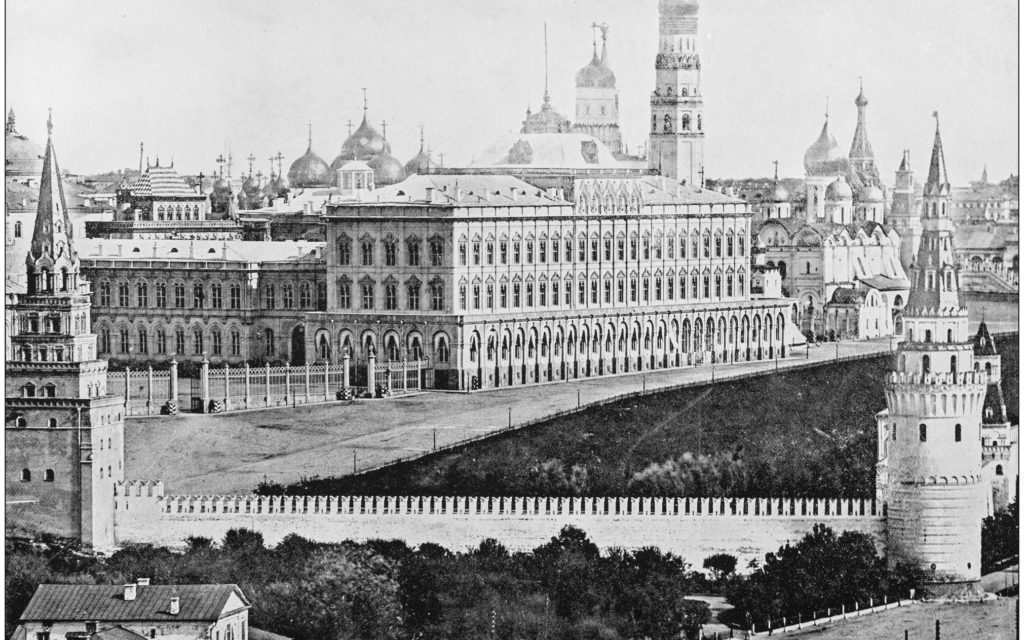
OPINION — In 2017, I wrote a short piece for Foreign Policy asking if Putin was more a product of his KGB background and personal circumstances, or whether he could be better described as acting in the longer cultural and historical tradition of Russian Tsars and Soviet Party bosses. I came down on the former explanation.
However, since that time, Putin has justified his actions – to include the invasion of Ukraine – in increasingly nationalist and historic terms. He has inveighed Russian myths and historical grievances, quoted chauvinist Russian philosophers and even claimed that Ukraine doesn’t exist, except as part of a greater historical Russia.
Of course, he has also continued his pattern of using KGB tricks of political and information warfare. In the lead up to the war, Putin’s Kremlin engaged in a torrent of disinformation, subversion, propaganda, support to fringe and violent groups, agitation, cyber theft, provocation, deception, conspiracy and even assassination. His goal was to intimidate western leaders in hopes that they would not find the will to push back against his invasion. As the war has continued, Russia has increasingly used lies and deception to deny its clear war crimes.
While the west took far too long to understand and respond to Russian disinformation following the 2016 US Presidential election, we have since become accustomed to Kremlin lies. However, despite their artlessness and credulity, too many people nonetheless fall for the deception. According to a recent Levada Center poll, Putin’s popularity rose from 71% to 83% following the start of the war. Similarly, Americans on the far right and left sadly seem gullible to accept conspiracies that reinforce their views.
However, as the war has continued, the shameless lying is of lesser concern than the daily butchery of the Russian Army. While the decision to invade an innocent country is Vladimir Putin’s alone, the rape, torture, looting and savage brutality by the Russian Army in Ukraine has spurred commentators to review Russian military activity over the decades and seek parallels. And there are many.
Credible accusations of Russian and Soviet war crimes are easily evident in Syria, Chechnya, Georgia, Afghanistan, Finland, Poland and the Baltic States, as well as against a variety of Soviet nationalities, and during WWII. A recent article in The New York Times described the deep historical roots of Russian brutality.
Today’s constant barrage of information makes it easy for countries to wage disinformation campaigns and your emotions are the weapon of choice. Learn how disinformation works and how we can fight it in this short video. This is one link you can feel good about sharing.
In a recent discussion with New Yorker editor David Remnick, Princeton historian Stephen Kotkin put the recent invasion in historical context. According to Kotkin, “What we have today in Russia is not some kind of surprise. It’s not some kind of deviation from a historical pattern. Way before NATO existed—in the nineteenth century—Russia looked like this: it had an autocrat. It had repression. It had militarism. It had suspicion of foreigners and the West. This is a Russia that we know, and it’s not a Russia that arrived yesterday or in the nineteen-nineties. It’s not a response to the actions of the West. There are internal processes in Russia that account for where we are today.”
And what are those 19th century parallels? To those who study Russia, the 19th century French aristocrat and writer Marquis Astolphe de Custine, is one of the best-known chroniclers of Russian political culture. A travel writer in the style of Alexis de Tocqueville who wrote Democracy in America, de Custine traveled to Russia in 1839, and penned his travelogue Empire of the Czar. De Custine visited Russia in expectation of finding material to support his criticism of France’s representative government, but instead became an advocate for constitutional government and a vocal critic of Russian despotism. He identified a number of 19th century Tsarist traits that can equally describe the Russia of Vladimir Putin, to include domestic repression, institutional incompetence and a culture of lies.
In the lead-up to the war in Ukraine, Vladimir Putin ramped up repression at home, poisoning his opponents and jailing anyone who criticized the government. In 1839, de Custine described Tsarist Russia as a prison, in which the emperor holds the key. As he commented, “under a despotism, all the laws are calculated to assist oppression; …every indiscretion of speech is equivalent to a crime of high treason [and] the only criminal is the man who goes unpunished.” De Custine concluded that, “other nations have supported oppression, the Russian nation has loved it: it loves it still.” In Russia, “despotic tyranny is permanent.”
While Putin’s use of lies can be attributed to his KGB background, there are also ample historical and cultural antecedents. In his book, de Custine claimed that the Tsarist court displayed a singular “dexterity in lying, a natural proneness to deceit, which is revolting.” He added that lying seemed to be part of a larger cultural instinct to not only hide the truth, but lead people astray. “Russian despotism not only pays little respect to ideas and sentiments, it will also deny facts; it will struggle against evidence, and triumph in the struggle!” wrote de Custine, who further noted that in Russia, “to lie is still to perform the part of a good citizen; to speak the truth, even in apparently unimportant matters, is to conspire.” And as we have seen in the 21st century, instinctual lying has a political cost. As de Custine outlined, “by continually endeavoring to hide truth from the eyes of others, people become at last unable to perceive it themselves.”
The recent invasion of Ukraine also displayed a surprising level of bureaucratic incompetence. It seems that the Russian Army suffered from a variety of problems, including poor planning, poor intelligence and an inability for mid and lower-level officers to make decisions without approval from above.
In Putin’s Russia, fealty to the Kremlin is valued far more than professionalism. Similar to Stalin in the lead-up to WWII, Putin’s intelligence chiefs reinforced his preconceived notions rather than challenging them. This behavior was also rampant in the 19th century Russian court that de Custine encountered.
According to his chronicle, the Tsarist court suffered from a total absence of independent thought brought on by fear of upsetting the Tsar. According to de Custine, “a profound flatterer in Petersburg is the same as a sublime orator in Paris.” He continued, “a Russian conceals everything,” and “a word of truth dropped in Russia is a spark that may fall on a barrel of gunpowder.” de Custine also noted a familiar similarity that Russians have shared across the centuries. Here, he said, “the greatest pleasure of the people is drunkenness; in other words, forgetfulness…I do not believe that suicide is common there: the people suffer too much to kill themselves.”
Like the Tsars before him, Putin has survived by a willingness to use force at home and abroad, and by maintaining an image of power. Over the past two decades, many observers have used the same phrase to describe Putin’s actions on the international stage — Putin plays a weak hand well. His bullying, threats and lies have protected him from those who might threaten his power.
However, like Tsar Nicholas in WWI, with his invasion of Ukraine, Putin foolishly turned over all his cards and showed his weak hand, seemingly breaking his spell of invincibility. In doing so he has allowed his enemies to better gauge their own strength and position. While it is not clear if Putin has gravely jeopardized his control at home, he has nonetheless weakened himself and Russia, and can no longer bluff that he is playing a winning hand.
As de Custine described 19th century Russia but could well be said of Vladimir Putin’s Kremlin, “a government that lives by mystery, and whose strength lies in dissimulation, is afraid of everything.”
Read more expert-driven national security insights, perspective and analysis in The Cipher Brief because National Security is Everyone’s Business
Related Articles

SUBSCRIBER+EXCLUSIVE INTERVIEW — With a mere 1.2 million citizens, Estonia is among NATO’s smallest members, but its contributions to Ukraine have led the pack by […] More

SUBSCRIBER+EXCLUSIVE INTERVIEW — Ukraine was hit by a fresh round of Russian missile attacks on Thursday, strikes that targeted and damaged the country’s power grid […] More
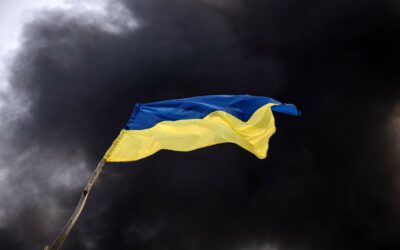
BOTTOM LINE UP FRONT – In the spring of 2022, Ukraine beat back a Russian assault on the nation’s capital and punished the invaders on […] More
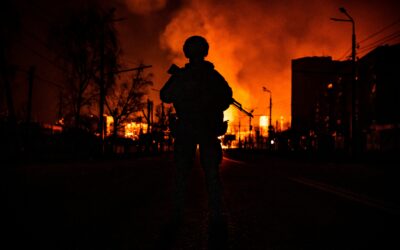
SUBSCRIBER+EXCLUSIVE — The Ukraine war has reached a “pivotal moment,” a “critical stage,” an “inflection point“ – all phrases used to describe the current situation […] More
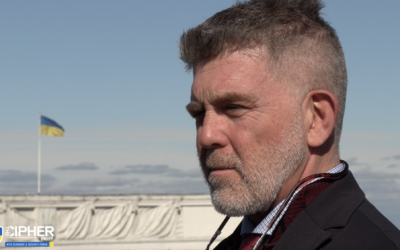
SUBSCRIBER+EXCLUSIVE EXPERT PERSPECTIVE — During the first week of April, The Cipher Brief traveled with a delegation of national security and military experts led by […] More
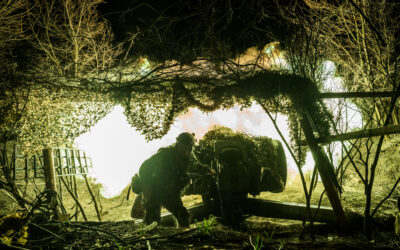
A DISPATCH FROM KYIV WITH GENERAL DAVID PETRAEUS (RET.) – Moscow is mobilizing more troops to bolster it’s frontline in Ukraine while stepping up remote-guided […] More
Search